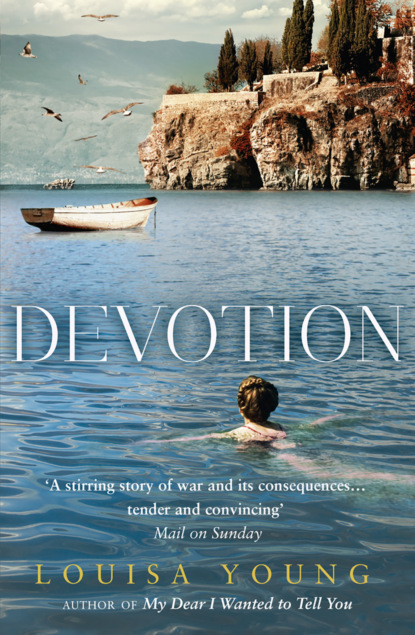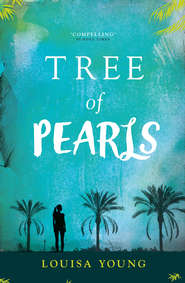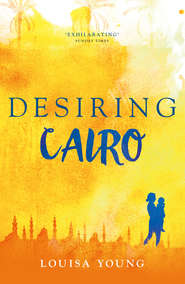По всем вопросам обращайтесь на: info@litportal.ru
(©) 2003-2024.
✖
Devotion
Настройки чтения
Размер шрифта
Высота строк
Поля
‘Ordinary bribery then,’ said Riley. ‘Goggles?’
‘Motorbike!’ said Tom.
‘So you’re open to negotiation. Good. We can ask Nadine to find the only school left in the country which hasn’t yet chucked you out. I dare say she’s still got the list.’
‘BSA!’ said Tom.
‘Possible motorbike, when you go to university, if your father agrees.’
‘University!’ the boy yelped, in new despondency.
‘Would you not rather design your own aeroplane?’
‘I don’t want to be an engineer!’
‘Do you want to spend your life at a disadvantage to other men?’
‘Well you haven’t!’ Tom cried. ‘And you didn’t go to university!’
Riley smiled his crooked smile. ‘Thank you, Tom,’ he said, and only then did Tom realise what he had said. But the car went over a pot-hole, and Peter woke, and didn’t even say, ‘Did I miss anything?’, just started staring out of the window, his mouth slightly pursed. Tom fell silent. After a while he enquired what was for dinner. Riley didn’t know.
Home was not Peter’s house, the elegant and pastoral Locke Hill, near Sidcup, where Tom had spent some months before his mother’s death. Nor was it the grand cottage of his grandmother, Julia’s mother Jane Orris, to which Tom had been snatched during the war. (Mrs Orris was the kind of relative with whom you would have tea if you had to, and whose voice on the telephone filled you with gloom.) No, home now, was in London: Nadine’s father’s comfortable and fadedly glamorous Georgian house on Bayswater Road, which had somehow become, over the years, Nadine and Riley’s comfortable and fadedly glamorous Georgian house on Bayswater Road, in which Nadine’s father lived with them.
Kitty was there in the hall, her arms folded across her smock. ‘Welcome home I don’t think,’ she said. ‘What are you doing here? It’s not holidays for boys yet.’
‘It’s holidays for me!’ Tom said, in his most annoying voice. ‘Now go away.’ He checked the foreign stamps Nadine had put to one side for him in the hall – several Italian ones, excellent – and in passing greeted Kitty with a casual clout about the head. Last time they had seen each other, as he had left for school, he had by a mere slip of the tongue called Riley ‘Daddy’, whereupon Kitty had kicked him and bared her teeth, making hissing noises. Not that it mattered in the slightest to him what she thought. But order had to be maintained.
Nadine was coming down the stairs, ink-stained, messy-haired and surprised from her studio in the attic, though she can’t be that surprised, Tom thought. She’d be cross, but Tom knew she wouldn’t be for long. She was concerned, but Tom didn’t concern himself with that; that was what women were for.
Kitty started scampering around Nadine’s skirts, saying ‘Tom’s been sacked again, he’s such a bad boy—’
‘Be quiet, darling,’ Nadine said, and Tom, while vaguely sheepish, could read on her oh-so-readable face that no, this was not the day on which Nadine would cease to find him irresistible.
‘Sorry Mums,’ he said, and tried to say ‘It was a duel of honour—’ but Nadine had interrupted him, saying ‘You will be, when no school will have you and you pass no exams and find no employment and you’ll be bored stiff all your life and your children will starve.’
He could see Kitty behind her, a ‘My children won’t starve’ smirk on her face.
‘I said sorry,’ he grumbled, at which point Dr Aunt Rose, a female relative of the better sort – not a moping romantic, nor a massively tweed-bosomed bossyboots, but a drily amused person who if you asked civilly would show you the contents of her leather medical bag (scalpel, opium, syringes) – appeared from the drawing room and gave him a not unsympathetic look. Suddenly his face felt treacherously insecure, so he barged past them all, heading for the stairs.
In the hall behind him Rose embraced Peter, clapping him on the back as if particularly glad to see him. Grandpa came out to see what the fuss was, patted Tom vaguely as he passed, and mooched off again. And there was Riley, lugging Tom’s bag, and calling him to come back out and help with the trunk.
As soon as he could, Tom raced up to his room. He glanced over at Kensington Gardens across the road. The park keeper was trudging by. The heavy leaves of high summer draped almost to the grass, but between them Tom could just make out glimpses of the Round Pond, a horizontal gleam in the distance.
He wondered if the Household Cavalry had been by yet, exercising their stupendously well-kept horses, in two matched, jingling, shining lines, heading round back to Knightsbridge. He thought about going down to the kitchen, where Mrs Kenton might be persuaded to give him some cake. He considered, too, going back down to interfere in the discussions they were no doubt having about his future. He decided against. Whatever they decided made little difference to him. Wherever they sent him, he would, after all, continue to do what he wanted, bear the punishments when they came, and apologise when he had to. And in due course he would be grown up, and free.
The following morning Nadine, her long curls tidied up, her dark yellow eyes calm, benevolently neglectful over breakfast, patently glad to see everyone in the right place – i.e., around a table and within her view – announced that the Italian cousins had invited them to stay during the summer holiday.
Joy engulfed Tom over his toast and milk. A foreign country! Foreign! And it would mean less time at Locke Hill with Peter.
Nobody had ever met any of these cousins. For years their existence had passed London by, until someone called Aldo Elia Fiore – Tom saw Kitty trying out the name, stretching her mouth round the unfamiliar shapes – son of Nadine’s mother’s sister and her Italian husband, had written to his lost cousin Nadine. And now she, Tom and Kitty were going to visit his family in Rome.
But Riley was not coming. Nobody was happy about this, but everybody accepted it. He had to go to work, of course. Men usually had to go to work, one way or another. This was the main way of telling that Peter was getting better: he was working now. Writing this Homer book for Riley to publish! There was a manuscript to prove it. Peter had shown it to Tom, with an expression on his face similar to the one Tom wore, on the few occasions when he’d liked a teacher enough to want to impress him. Peter had said, ‘Well. There it is. First draft,’ and Tom had looked at it and thumbed it, and said, ‘That’s a lot of words’, and that had seemed to do. Anyway, as Riley said now, ‘Books don’t publish themselves’, so he had to work, and not come on holiday, so the joy was clouded. If Tom had paid more attention he might have picked up that strong, tough, humorous, hardworking Riley, who could cope with anything (and had), simply did not want to take a train across Europe to meet new people, to have to talk to them, to stay in a house as a guest with them when he didn’t know them, and they would not understand his mangled voice (in English or his remnants of Italian), or know that he could not eat most solid food, or that he had to be able to sleep when he needed to, to stop talking sometimes even in the middle of a conversation, to leave the moment leaving became necessary.
Tom thought he knew all about Riley. Plenty of fathers and uncles had lost arms and legs in the war; Riley had lost part of his face. Plenty of men had wooden legs and prosthetic arms (Mr Tanley at school had one with attachments: he had a spork, a gripper for pens, and all kinds of wood-working tools he could just screw in, and he’d let you play with them). Riley had had his face repaired using his own skin from the top of his head. His black hair was thick and curly; he would comb it back with his fingers over the broad strip of scar when he had to take off his hat. He looked jolly good considering. Tom had always known this, and didn’t remember being told. Though he did remember being told about Peter – Dr Aunt Rose saying to him, in the drawing room at Locke Hill, ‘Tom, some men are wounded in their bodies and some are wounded in the heart of themselves, in their soul, and your poor dad is wounded in his soul …’ He had been on the sofa with Max the red setter, and he had thought she was going to tell him off for letting the dog be on the furniture, and she had looked sad, so sad, that he had never wanted to bring it up again.
For a brief period he had thought she meant ‘sole’. If Riley could cope with a wounded face, and be kind, then surely only a nothing-kind-of-man would be bothered by a wounded sole? One afternoon, while his father was asleep in his study, Tom had seen his large white feet flopping over the arm of the leather chaise. There was nothing wrong with them.
When Tom realised what it really was – wounded in his soul – the phrase, if anything, made him more scared of his volatile, sharp-tongued, reclusive father.
‘You all go,’ said Riley, ‘and have a wonderful time.’
‘But you and Nadine went on honeymoon to Rome!’ Tom said. ‘Don’t you want to go back?’
‘I would love to,’ Riley said, and Nadine looked over to him, a grown-up look, tender. ‘And I will, one day. But at the moment I can’t.’
‘It’s not fair,’ Tom said. ‘You went to the battlefields with Peter.’
Riley pulled a face at him.
‘But they live on an island! In the Tiber!’
‘That is a great temptation,’ Riley said. ‘I will come, another time.’
Tom fell silent. Because of the jawbone Riley had left in France, his refusal had to be honoured.
Chapter Two (#u91b640f4-658a-58b1-aa5b-14e7c5572429)
Towards Rome, Summer 1928
Crossing France, Tom stared intently from the train window, looking for remnants of the war: tanks, or crashed planes like his one at Locke Hill. No luck, so then he just watched north turn to south before his eyes, cabbage patches to vineyards, apple orchards to olive groves, green to gold. The train stopped for an hour somewhere in the Alps and he leapt off, sniffing the air, letting his eyes rest on crystalline distances. Kitty, who was only eight, and Nadine clambered down after him; they wandered along a lane and found wild strawberries in a field, with snow-capped mountains beyond and a cold stream for their feet. Overhead a slow and tiny scrap of black curve circled: an eagle, he decided. How high? Higher than a plane? He wished Riley were there.
Kitty saw it, and cried out that Peter would like the eagle.
‘Don’t be stupid,’ said Tom automatically. ‘Peter doesn’t like anything.’
Kitty squeaked as she dipped her toes in the stream, so Tom was obliged to mock her again. Nadine said, ‘Be nice, darling,’ as she always did, and flicked the icy water at him so that he squeaked too. The cry of the train guard echoed down, and they grabbed their shoes and rushed back up to the station, breathless and cheery.
The moment they crossed the border into Piemonte he announced ‘Something’s different here,’ even though the goats and the mountains looked much the same and lay under the same blue sky. ‘It’s different,’ he insisted.
The mountains faded from underneath them. At Milan they changed trains, and rattled, rattled, rattled on, itchy, metallic, grubby, south and west: the coastal flats, the sea beyond parades of pine trees, pale cattle with wide amazing horns. It took all day.
They arrived in the sunlit evening. Nadine twisted in her seat, pointing out churches and aqueducts, ruins and piazzas, places she recognised from her honeymoon, nine years before. Tom stared with an immediate and complete jealousy, wanting the adventure she and Riley had had, and the knowledge they had acquired. And then suddenly, right outside the train window, like a massive hot-air balloon crash-landing in front of them, the dome of St Peter’s appeared, and was gone again, leaving the vista beyond of roofs and bridges and the ancient world. And the heat! He was sweating in his English tweed. He was enchanted.
A cab took them from the station along the river, past broken arches and massive columns and tall stone doorways leading to dappled courtyards, past donkeys and peasants and priests and endless bold-eyed dark people. Tom took it all in. He wound down the window: the smell was of hot dusty donkeys, of broth boiling, garlic frying in olive oil though he didn’t know that’s what it was. The light lay golden on white stone. Voices were calling, shouting, chatting, the rhythms unfamiliar and enticing: Aoh! he heard, Aoh! By the time they arrived, a great and dusty expedition in the small piazza, he was like a big dog in the back of the taxi, desperate to get out and be in this city.
Each of the visitors was to fall like plums in a heatwave for the charms of Rome, but Tom fell hardest.
They were in a piazza, on an island, in the river, in the middle of this city which was more like a painting come to life than any actual place that Tom had ever seen. He was practically quivering.











